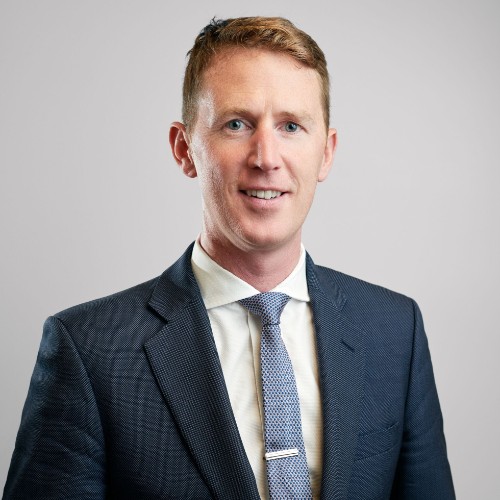Go Big and Go Global! How Global Standards Can Benefit the GRC Community
- 0.5
- 1
- 1.25
- 1.5
- 1.75
- 2
Megan Phee: Hi, I'm Megan Phee, and this is GRC& Me, where we interview industry thought leaders in governance, risk and compliance, on hot topics, industry specific challenges, trends, and more. Learn about your methods, solutions, and outlook in this space. Hello, this is Megan Phee with GRC& Me. Today I sit down with Rob, the head of sales of the Americas at CUBE. Rob and I discuss a topic of regulatory standardization and normalization, and the impact on compliance teams day- to- day. And now here's my conversation with Rob. Hi, Rob. Welcome to the podcast.
Rob Fulcher: Hi Megan.
Megan Phee: It's such a pleasure to speak with you today. I'm really excited to cover off on a lot of good topics that I know have been really front and center for a lot of our customers globally and throughout the US. And so let's just get right into it. My first question for you is just how did we get here?
Rob Fulcher: Good question, and assuming you mean, how did we get to this point of so much disjointed and disconnected information, which I'm assuming is the case. It's a very long answer, but let me just touch on a couple of points. Firstly, we've been on this merry- go- round of regulating and deregulating the industry more than once over the course of a number of different decades. And as you look at the history just in the US, I won't go through the full history, but if you go back to the early 80s, it was considered that the banks over here were being stifled by regulation. So there was an initiative or a drive to try and deregulate the industry a little bit more over the course of the 80s and 90s to try and make the banks more innovative and more competitive. But of course, with deregulated markets, they're more susceptible to fraudulent activity. And by the end of the 90s, after some high profile cases, we started to see new regulations coming through, most prominently with the Sarbanes- Oxley Act and send some ripple- on regulations off the back of that. But it really wasn't until the financial crash in 2008, which was obviously a little bit more recent now, that we saw a real push, not just the US level, of course, but globally, to juice and implements new legislation and regulations that protected consumers in the public, and investors from such a financial crash happening again. But all of that is to say that this cycle of regulating deregulating and then reacting rather than being proactive with regulations have largely or traditionally been happening at national level, rather than looking at it through a global lens. How do we introduce global standards, and how do we produce and disseminate those standards in a common format? So if you pan out and look at this at a global level, through the history of the financial services sector, you can see how we've got this state of so many inconsistencies and so many different formats and methods of disseminating regulatory content.
Megan Phee: I would love your thoughts on and your opinion of why didn't we just have common framework, common regulatory standards to begin with, in your opinion?
Rob Fulcher: Yes. Wouldn't life be easier.
Megan Phee: Yes.
Rob Fulcher: Well, it's actually an easier question to answer than the first. I would start by saying that the financial service sector, it predates through globalization. So 30, 40 years ago, we were far less global than we are today. So markets were looking at how they protect their own market, as opposed to, how do we look for synchronization and consistency across the globe. And secondly, again, sign of the times, technology just wasn't as prevalent 30, 40 years ago as it is today. So we didn't have the ability to quickly compare and contrast across multiple jurisdictions to find a common standard or where a common standard could exist. And then lastly, I would say, if you look at where we are today, the sector, it's more vast, it's broader. We didn't have topics like digital and cyber to consider 20 years or so ago. And you just think about all the considerations that come off the back of those topics. That's, I think, why we are in the state that we're in today, that we haven't had that kind of pause for thought to think about, how do we tackle these big global topics to create that single standard that we can all operate from?
Megan Phee: Yeah. I hear what you're saying, and I definitely agree with. It's easy to operate in a silo, heads down. How does this apply to my market, to my country, to my region? But I think the opportunity there is to look at comparing and contrast, and to your point, technology can be an enabler to do that, to provide visibility, and it all is a part of our innovation over the years in this space. And so today though, we've got folks listening to this podcast who are in the roles and the responsibility of being compliance leaders, whom have to be mindful of this all. And so today, in your opinion, what does a lack of standards mean for those compliance leaders and those compliance teams?
Rob Fulcher: Well, those compliance teams are living that today and it's complex and it's a disconnected regulatory world. I was reading recently that just last year alone, there were 300 million pages of regulatory materials produced, and they're all disseminated in different formats through different methods, be it email subscriptions, regulatory newsletters. So that's a real headache. Because there's no global standard on how regulation is produced or shared, it's just enormously burdensome for financial services firm to try and keep up with and maintain, especially when you consider that across multiple jurisdictions. So it basically means that you've got firms having to assess their business practices and how they review regulations, and in turn, controls and policies, on a jurisdictional by jurisdictional basis, versus trying to manage and review on a global basis across a global standard.
Megan Phee: I have heard it from our customers too, they're doing that. They're getting alerts, they're getting newsfeed, they're getting consultation papers, they're mining for all types of information, and it's coming to them in all types and formats. And it would take an army to do this. And so how do you feel like standardization would help, can help? Why is it important, in your opinion?
Rob Fulcher: Well, I think the only way of managing global regulations, particularly some of these emerging risks and topics that we're seeing that have that global impact, is through global coordinated effort. And I think that's how we'll ultimately drive consistency and efficiency through our firm's internal operations. But in turn throughout this sector as a whole. We're never going to have true perfection, I don't think. It's a fast moving regulatory world that we live in, but we can certainly make the sector better and make the environment that clients, professionals work in safer and easier and more comfortable to work within.
Megan Phee: And you mentioned it might be like dreamers task to think that we can get standardization across all areas. But if there was maybe an area of regulation or a regulatory sector where you think that taking a more standardized approach would really have significant yield on efficiency, on visibility, on compliance, what would be that area of regulation that would be impactful in that way?
Rob Fulcher: Yes. Good question. It's not so much an area, but there are lots of topics that have that global impact. So anti money laundering, crypto, ESG, where you've got all jurisdictions around the world all kind of thinking about the same things and trying to introduce their own rules, of course. But the topic itself, it transcends borders. So you can introduce global standards on those topics. And then in turn, have that global approach and a global framework to work from. Of course the irony is that there is a risk that if left, as we have done things in the past, that while these big topics transcended the borders, they could fall back into this nationalistic approach of how do we address ESG? ESG is a great example when we should be looking at, how do we address ESG globally?
Megan Phee: Yeah, well specifically ESG. That is the intention of a successful ESG initiative and program is to have that impact and continuity globally. So, yeah, yeah, I appreciate what you're sharing there. I guess another question I would have for you is how do you feel about the value of regulators retaining regs that would match their own economies and structure? Do you find that's important? Is it not important?
Rob Fulcher: I think it's appropriate in some cases. In some cases, local regulators and governments of course, will need to take into account local factors in their economy that personally adjust to them or specific to their own regulatory environment. But I think for the most part, we need to keep an open dialogue and tackle these regulatory topics in a collaborative approach, not just between financial institutions and regulators, but reg techs as well. Because in most cases, we are trying to address the same challenges. So you think about the time and effort that goes into addressing such challenges, regulatory topics. It ultimately is duplicative across different countries. And as I mentioned earlier, as we've been discussing, it also breeds those inconsistencies across different jurisdictions, even though the intent is to address the same problem.
Megan Phee: And I think what I've been seeing in the market is to the spirit of trying to address the similar problem, regardless of what region or what country you're in, I think folks are starting to lean into leveraging technology as a way to help them in the standardization, help them in just awareness and data collection of all of the things to be mindful of when it comes to regulatory compliance, the papers and changes and all of that. How do you feel that new technology is either helping or hindering the quest or this future state of having regulatory standards?
Rob Fulcher: I think it is absolutely helping. If we kind of look at those global standards, I think we're a way off from having global standards across all those big regulatory topics. So fortunately, we actually have technology that can help relieve compliance in so much as standardizing all the different formats that regulatory materials are produced in, reading those regulatory materials, classifying them en masse. So in fact, I'd go further. It's not just helping, I would say that it's essential within the financial services sector. I can say this firsthand as I'm sure LogicGate has come across as well, but with CUBE's customers, the ones that are across multiple jurisdictions, it's almost unworkable, unrealistic to expect those firms to manually monitor hundreds, if not thousands of different regulatory bodies, the different formats that they come in, and then try and determine of those regulations produced that day, which ones are relevant to us and who are they relevant to? So technology is really helping to drive those necessary efficiencies that the compliance is seeking.
Megan Phee: I know our companies have worked together to help solve those problems for customers and financial services, and in the crypto space and others where they're evolving, they're growing, they want to stay ahead of the regulatory compliance needs. They want to know what does a new market mean for them in regards to a regulatory compliance versus it being a inaudible, the business goes in a new market and then they have to catch up to see what does that mean? So it's about having the data at your fingertips in an organized way to make strategic decisions, growth, acquisitions, et cetera. And that's what our customers, our mutual customers, I think the benefit that they're realizing is yes, to get their arms around the volume of work that they need to do and review for the current reg, and the regulatory standards and frameworks that they have to adhere to. But it's also that in the future, where they want to go, where will they be taking their services and products into what markets? And it really gives them that confidence to do it and it not have to take another full- time person to do it. To think about what does this new market mean to us? Does it require a new full- time team member to do it? They can leverage technology and then use their time to make strategic decisions. So, yeah, I'm glad you shared that. It's not just the current efficiency, I think, that they're realizing. It's the ability to plan and forecast and strategize where they want to take the business and products and services. So that's great. That's fantastic. To wrap up our conversation, we always end the podcast with a fun question. So we are starting to emerge from the pandemic. Restrictions are lightening in certain areas and regions. So are you finding yourself emerging? Are you traveling a little bit more, whether it's for work or for fun? How have you started to emerge out of this pandemic?
Rob Fulcher: Yeah. I think from a work perspective, I've noticed, I think we're all starting to notice, that more of our customers are in the office, which is great because now we get to visit our customers, which we love doing as opposed to doing everything virtually. I don't think we're going to go back to how things were, certainly not in the foreseeable future, but it's great to see that. More so because it means the pandemic is further in our rear view mirror more than ever. From a non- work perspective, yes, I've got some travel coming up. I'm heading off on holiday next week to Charlotte with my in- laws, which I know terrifies some people. They might be able to hear me, so I'll say that doesn't terrify me. I'm looking forward to it.
Megan Phee: You've been lucky to have a extension of your family that you enjoy to holiday with. I think that is a huge testament to them. That's great. Well, that will be wonderful. And on the topic of travel, if you want to continue the discussion on the regulatory landscape and technology as an enabler, join us for our no risk roadshow with our friends at CUBE in Boston, New York and London, and visit us at logicgate. com to check out these events and more. Thank you so much, Rob, for joining us today.
Rob Fulcher: Pleasure.
Megan Phee: Until next time, this is Megan Phee with GRC& Me.
DESCRIPTION
At GRC & Me, we like to go big or go home. In this episode, we do just that and take on the topic of global standards. We brought in the perfect person for the task, Rob Fulcher, Head of Sales for the Americas at CUBE. Rob chats with LogicGate's Director of International Sales, Megan Phee, about why we find ourselves in our current regulatory situation, how and where global standards can help, and how new technology can help or hinder the future state of regulatory standards.
Today's Guests


